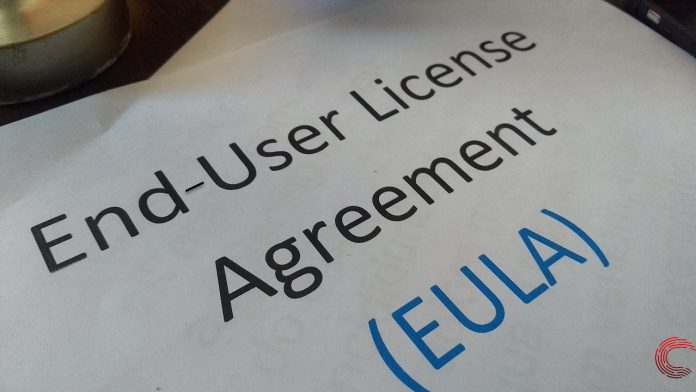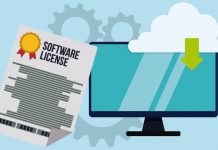This article is written by Somadatta Bandyopadhyay, pursuing Diploma in Advanced Contract Drafting, Negotiation, and Dispute Resolution from LawSikho. The article has been edited by Dipshi Swara (Senior Associate, LawSikho).
Table of Contents
Introduction
End-user license agreements (EULAs) have gained momentum in the last few years and have started accompanying a plethora of goods, thereby leading to the imposition of restrictions on consumers. These agreements which are entered into between the owner (known as licensor) and the end-user (known as licensee) of the product, primarily go on to specify the rights and restrictions that apply to the software. Most software these days demands the user to enter into clickwrap agreements before installation. Electronics also come along with shrink wrap agreements to abide by for the end-users. The restrictions on EULAs are not insignificant, they are mainly put in place to safeguard the intellectual property (IP) of the organizations that propose the license terms. In case there is any violation of said license terms, a remedy in the form of an IP infringement suit is always available.
Are there any limits to the scope of permissible licensing?
Though EULAs are deemed valid and are enforceable in law, there are certain impediments with respect to how much restrictions are within the allowed limit for licensors to consider. One such impediment is the copyright and patent misuse that can be used as a defense to a suit for infringement.
Patent misuse
A patent holder cannot expand the scope of the patent indefinitely. The patent then shall be deemed unenforceable. This doctrine, also known as the patent misuse doctrine, was first laid down in the case of Morton Salt vs G.S.Suppiger. The US Supreme Court in this case held that tying agreements that basically require the purchase of an unpatented product with a patented one is a misuse of the rights granted under patent protection and is therefore unenforceable.
Antitrust law and patents do not go hand in hand. Patents help inventors monopolize on their inventions and negates competitors from making, using, selling said patented product, antitrust law on the other hand considers such monopoly anti-competitive.
However, we have come a long way from Morton Salt and the scenario is now more favourable for patent holders as they are allowed the freedom of entering into contracts as they deem fit and the relevance of antitrust has decreased significantly. There was a significant change in which tying agreements were viewed after the case of Lexmark international vs. Static Control Components, in which the Court mentioned that in order for a tying agreement to be anti-competitive, it is important that proof of market power exists in favor of the company issuing the agreement. There can be patent misuse only if companies holding patents have a significant hold on the relevant market in order to develop device licenses as per their whims and fancies. If there exists no such market relevance, then there are unrestrained abilities to craft restrictions without triggering antitrust apprehensions. That conversely also means that market leaders who are dominant in the field have bigger restrictions on their licensing etiquette.
Having said that, a patent misuse curtailment that still stands strong and holds true is that patent protection cannot be extended beyond what is stipulated as per the statutes. Therefore any agreement that claims the payment of licensing fees for use of a certain patented product beyond the period of protection constitutes a misuse of patent and is therefore unenforceable.
Copyright misuse
Overreaching licensing terms that constitute a violation of public policy when used in conjunction with copyright protection for a particular product, is touted as copyright misuse. This has been reinstated in the case of Lasercomb America vs Reynolds, where the agreement mentioned that based on the software that was being licensed, no competitive product could be developed for a period of ninety-nine years. This was a serious impediment, given that the restriction lasted beyond the period of potential copyright protection. This would deem any such similar license unenforceable and continue to remain so unless the misuse is cured.
Patent exhaustion and first sale doctrines
There have been instances where courts have limited the enforceability of EULAs when patent and copyright owners have chosen to sell their works rather than license them out under the patent exhaustion and first sale doctrines.
First sale
The first sale doctrine particularly restrains EULA scope in order to curtail downstream rights of fair use for permissible copies of works with copyright protection. In this context, in order to resolve the question of enforceability when it comes to license versus sale.
The case that first brought about a discussion in this context was United States vs Wise, where the question was according to the agreement signed by both parties did the transfer of a film result in licensing or sale. Even though all the agreements read “License”, the rights granted, for example, control of a copy of the film in question for perpetuity was in the nature of a sale. Therefore, it was concluded that in order to determine whether the first sale doctrine is applicable or not, the economic realizations are to be considered, rather than the labels used.
Patent exhaustion
EULA enforcement denial has another mechanism backing it up recently, which is the patent exhaustion doctrine. It reiterates that once a patented protected article has been sold by the patentee without any restrictions, the patentee exhausts their rights to control any future sale and use of the said article by enforcing it.
Policy implications
There has been a paradigm shift with respect to EULAs for patented and copyrighted products. An increase in the acceptance of copyright and patent misuse has resulted in the courts favouring the restrictions imposed by EULAs. The moot question that still remains is the implications the new regime might have on consumers.
Uncertainty of consumers and product manufacturers
With the diverse opinions of various courts, some favoring licensing of products via EULAs and others restraining their enforceability, the consumers and manufacturers are on the fence about what terms might be greenlit and upheld and which ones would be considered an overreach.
Incentives for patent holders
More legal support EULAs receive, the inventors and authors of protected works are incentivized more. This enables them to extort more rewards from the works. Homogeneous markets can now be divided. The division can be based depending on the use of the protected work and the person(s) holding the protected work can restrict the resale of said work as a condition in the license. This leads to arbitrary price determination based on the value put on a product by the user.
But even with the disparity and arbitrary pricing, the advantages received by society linked to the higher incentives to sellers exceed the cost borne by consumers. The inflow of more products may be initiated under a better incentive program that could possibly be brought about by more enforceable and flexible license restrictions. But for that, licensing of products in general also has to be accepted.
Expansion of product restrictions
With the increase of products in the market, a control mechanism in the form of license restrictions would also increase which would ultimately downstream to restrictions on consumers buying products that might contain patent-protected technology. This could lead to the right to repair of consumers being taken away, as the repairs would only be allowed at authorized centers taking away the livelihoods of thousands of independently run repair shops. Similarly, if resale is barred by EULAs, then businesses dealing in used products, cars, books, and similar products, would be eliminated.
Even in the case of works protected by copyrights, the first sale doctrine could be ended by putting in license restrictions. Owners of copyright could stop reviewers from quoting portions from copyrighted works or even prevent the publication of negative reviews for their work. In the case of software, testing of software could be restricted without the approval of manufacturers.
Probable solutions
Unregulated freedom on the imposition of EULAs could change the dynamics between consumers and sellers. There would be a need to put checks in place without additional implementation of new legislation using already existing regulatory frameworks.
For example, the licensing restrictions could be clearly visible for consumers otherwise it would be deemed deceptive and unfair trade practice. Also, the methods of disclosure for all undertakings involving EULAs should be made uniform in order to preserve the right to contract of sellers while also giving consumers the opportunity to be alert and wary about extremely restrictive terms and conditions. Companies could also be given incentives to compete based on restrictions imposed by licenses.
Conclusion
A field as murky as Intellectual property rights can be hard ground even for lawyers to understand. Therefore, the increase in complexity leads to consumers not being able to appreciate the laws put in place to instigate the industry’s interests. The balance cannot be threatened by creators using provisions of contracts to reserve rights granted to them under copyright or patents for themselves and taking advantage of the monopoly given to them under statutory law instead of surrendering said rights for the benefit of the public. Whether it is by withholding the benefit given to creators in case the public benefit is reduced or any other means, the balance has to be maintained at any cost.
Students of Lawsikho courses regularly produce writing assignments and work on practical exercises as a part of their coursework and develop themselves in real-life practical skills.
LawSikho has created a telegram group for exchanging legal knowledge, referrals, and various opportunities. You can click on this link and join:
https://t.me/joinchat/J_0YrBa4IBSHdpuTfQO_sA
Follow us on Instagram and subscribe to our YouTube channel for more amazing legal content.
 Serato DJ Crack 2025Serato DJ PRO Crack
Serato DJ Crack 2025Serato DJ PRO Crack











 Allow notifications
Allow notifications


